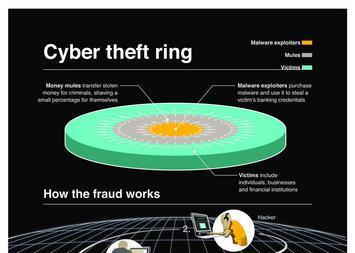Sustainable development, sustainability and corporate social responsibility (CSR) are terms that are bandied about every day. Yet, how many of us truly understand what they mean on a practical level? As consumers, we are bombarded with information, often conflicting, that can make it difficult to know what constitutes sustainable or unsustainable behaviour. As organisations, we struggle to understand what defines a responsible company: who is responsible and to whom? What are the costs? Is there a business case? What actions should be taken?
Further, it is clear that there is mounting pressure from many elements of society for companies to take greater responsibility in all areas where they exert influence. This presents new and complex challenges. Companies must balance long-term goals with short-term market expectations, financial performance with environmental stewardship and sensitivity to cultural values, competitive advantage with corporate accountability and transparency – often in an atmosphere of public cynicism and a lack of clear regulatory framework.
However, there is no doubt that CSR is at the heart of a proactive risk management strategy. A sustained commitment to it reduces exposure to reputation, financial liability, political and security risks, and supply chain vulnerability. More and more companies are using CSR programmes to create value through:
Most organisations have ongoing programmes that fall wholly or partially within CSR objectives. However, since CSR issues cut across organisational structures and reporting lines, a holistic management framework is a critical success factor. The underlying principles of successful CSR initiatives include these:
Support from senior executives is critical, but meaningful input and active involvement from local operations should drive CSR.
There is a growing list of certifications, assurances, and quality management programmes that can support CSR programmes. However, effective CSR is always underpinned by ongoing communication, continuous learning, and a shared corporate understanding of the right thing to do.
Companies that operate in a global environment must strike a practical balance between an appropriate level of global consistency, and allowing for local interpretation of CSR priority issues, indicators and targets.
Effective CSR programmes will include active, ongoing involvement from communities of interest – both internal to the company and external. Decisions on who should be involved need to be made at the initial stages of programme design, and must be re-visited on a regular basis.
Everyone involved or affected needs to understand what will be done, why, and how it will benefit their organisation (and of course, themselves). Initial resistance to change is best addressed by training programmes that should be developed as part of the programme implementation, and form part of a continuous learning curve.
A company that makes a commitment to a CSR programme is at the same time committing to widespread disclosure of CSR performance. This means reporting the good with the bad. Schemes such as the Global Reporting Initiative provide guidance on triple line reporting.
When beginning a CSR programme it is essential to consider the organisation's environmental impact, since reducing environmental effects will ultimately reduce social impacts and financial liabilities.
Environmental dimension
Experience has taught us that environmental impacts – real or perceived – are among the most visible and socially sensitive aspects of a company's operations. It is here that an organisation may face its biggest challenge, particularly in light of changing legislation and increased consumer awareness. Therefore, the general approach to CSR should begin with the consideration of all environmental issues and priorities and works through related social aspects and financial implications. In all areas of a CSR strategy, a company should seek the best advice and expertise available. This is absolutely essential as far as the environmental dimension is concerned. Doing so will help to identify areas where the company can reduce existing environmental impacts and lower costs. Also, an independent resource can collapse implementation times, as well as provide training and support as the programme rolls out.
Choosing a partner to support the CSR programme can be a little like finding a needle in a haystack. Many of the large consultancies may appear to be a good starting point. But be warned, some major consultancy firms may only take a superficial business-based look, which will not provide the depth of understanding and environmental experience necessary to have a positive impact on a social and financial basis. Your CSR partner should offer all the benefits of hands-on experience gained from solving big environmental problems.
Third party expertise is usually essential when defining key environmental parameters, since this involves assessing and considering risk and your company's level of direct responsibility, alongside its ability to control. This approach will start at the operational level, then work upstream and downstream along the supply chain. Also there are opportunities to improve environmental performance through consideration of an overall site approach, rather than one solely driven by meeting media-specific compliance targets (for example air, ground and surface water).
Social dimension
The potential areas of social impact may include employees and their families, local communities, citizens' groups, consumers, shareholders, governments and many others. In dealing with social issues, an approach of enlightened self interest is the best way forward and will help to evolve a "win-win" situation for all. Underpinning a successful social programme will be:
Financial dimension
A holistic CSR approach means that the emphasis in this area is all about risk management, on a site-specific and portfolio basis. The company's financial managers work closely with the CSR partner to ensure that all material facts relating to environmental and social issues are properly reflected in financial statements and reports. This will help to identify opportunities for cost savings and value creation through innovation and new revenue streams.
CSR is a huge topic for any organisation to get to grips with, so it often helps to seek expert help and resources from the start. By 'doing the right thing' it is possible to limit risk and increase opportunity.
Karen Clarke Whistler is a consultant with Golder Associates Europe Ltd, Tel: 0628 771731, E-mail: kwhistler@golder.com
Assurance Standard
In March, AccountAbility, the non-profit institute of social and ethical accountability, launched the world's first assurance standard. It developed this to ensure the credibility and quality of corporate public reporting on social, environmental and economic performance, as demanded by campaigners and the public, and increasingly by investors and regulators.
AccountAbility says that the standard will help address a growing crisis of confidence in business and organisations. This was highlighted in research such as the recent MORI poll which concluded that 73% of the British public does not believe that business acts socially responsibly. Another poll recently conducted across 46 countries for the World Economic Forum found public trust in the corporate community fell well below that of other distrusted institutions, such as the World Trade Organisation and the International Monetary Fund.
The standard has already been piloted by some of the world's leaders in sustainability reporting and practice, including Danish pharmaceutical company, Novo Nordisk, the UK lottery provider, Camelot, and the Co-operative Bank and CIS in the UK.
Reports about social and environmental performance lack credibility without a genuine assurance dimension, says Tom Delfgaauw, AccountAbility Chair, and former vice president of sustainable development for Shell International. The standard also places new demands on consultants and accountants providing external audit and verification. It requires them to demonstrate both independence and impartiality by publicly disclosing commercial relationships with their clients, and their competencies in examining complex issues like human rights, labour standards and climate change.
Using the standard not only ensures that the information presented in sustainability reports is accurate but also that it is relevant to the reporting organisation and to users of the reports. In order to establish the relevance of information reported, the standard advocates a process that is premised on what is material to the organisation and its stakeholders. This means that an organisation must take account not only of its own priorities, but also listen to, learn from and respond to the concerns of its stakeholders, whether they are investors, NGOs, customers or employees.
It goes a step further by asking that the auditor (ie assurance provider) makes an assessment of whether the reporting organisation actually understands its impacts, and whether it will be able to meet the sustainability commitments that it makes.
The standard itself costs nothing to use and can be downloaded from AccountAbility's website. The real costs are for assurance itself. The standard may make them more expensive initially, because of the considerations required to push up the quality of assurance to an acceptable level. However, as AccountAbility says, that there is little point in commissioning assurance if its results will not be robust or credible. www.accountability.org.uk



















